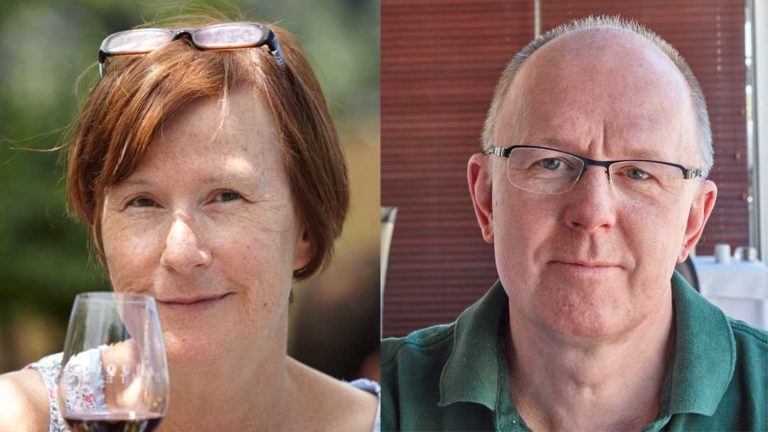

 Time for Pinotage to come out of the closet?
Time for Pinotage to come out of the closet?
The apple never falls far from the tree.
Well, sometimes it does. For, to be honest, does pinotage really resemble its parents, pinot noir and cinsault? Not so much. In any case, the dark colour certainly does not indicate that pinotage originates from the two grapes that produce some of the wine world’s lightest red wines.
Pinotage is finally on its way to becoming an adult. At quite an advanced age as it was created in 1925. But since it was almost immediately abandoned by its creator Abraham Perold and actually forgotten for many years, it is in fact in reality only 60 years old. It was almost pure luck that it did not completely disappear.
The first commercial Pinotage wine was not made until 1959 in Stellenbosch at Lanzerac.
So, during 60 vintages producers have been trying to understand pinotage. Not such a long time compared to most other grape varieties. Whatever the reasons, for a long time pinotage has had a poor reputation. To put it simply: people did not particularly like it. Pinotage has had a tough life.
But now its luck is about to turn. The growers have pressed the reset button. Now they will make people appreciate pinotage. We felt the winemakers’ enthusiasm when we were in South Africa recently. We no longer heard statements like “hopelessly difficult grape” but rather “now we understand the grape much better” and “it is very close to our hearts”.
Danie Steytler Jr of Kaapzicht, one of all the winemakers we met, explained that it may not be so strange that it takes a few years, or rather a few decades, to understand how a brand new grape variety should be handled to produce quality wine.
Pinotage will now find its place in life and more specifically in the South African vineyards. Right now, it is less planted than both cabernet sauvignon and syrah. But its status has already been officially raised. In 2019 it was decided that it must be the dominant grape in the wines called Cape Blend. The least one would expect.
In any case, it was very clear, judging by the wines we tasted at the wineries we visited, that pinotage is today capable of making great wines. One of our travellers said on one of the last tastings on the tour about a pinotage we tasted that “this is the best wine of the whole trip”.
But the story doesn’t end with pinotage.
Another winemaker we met showed us what is probably the world’s first cuvée made from the grape called chenil. Chenil is another South African crossing, this time between chenin blanc and ugni blanc, a grape that no-one has made wine from before. But that’s a story for another time.
Crossings (and hybrids) are a really hot topic today.
But now over to upcoming wine tours instead.
It is high time to think about booking a wine tour this fall, when the harvest, or harvest preparations, are in full swing.
For the winter of 2021, we have lined up three exceptional trips, to the southern hemisphere’s sun and warm weather during the northern winter times: Argentina-Chile, South Africa and New Zealand.
Travel to the world’s wine regions with BKWine. We make tours for those who want a great wine experience, who want to meet the winemakers, to try the most exciting wines, get an insight into what goes on behind the scenes in the wine world. We are completely independent and can choose the very best visits. We make wine trips for the wine enthusiast.
Soon we will leave for New Zealand. Follow that journey on Instagram and on Facebook – more on that below.
Britt & Per
PS: Recommend to your friends to read the Brief !
– – – – –
What’s on at BKWine Tours
- Bordeaux, April 15 – 19, 2020
- Champagne, September 16 – 20, 2020
- Bordeaux, September 30 – October 4, 2020
- South America, Chile and Argentina, January 18 – 31, 2021
- New Zealand, February 18 – March 5, 2021
- South Africa, March 17 – 26, 2021
For more information please contact us on email or on phone (we’re on French time), or go to our wine travel site on www.bkwinetours.com!
We also make custom designed wine tours – on-demand tours for you and a group of friends, for your company (maybe to scout new winegrowers?), for a special event… We can combine winery visits and wine touring with other activities: gastronomic workshops, visit to an oyster farm, truffles hunting, cheese making, and more. More info on the custom designed and bespoke BKWine wine tours and travel here!
Read our book(s)
We have written several wine books, nine at the last count. One of them has been translated to English; the others are (so far) only available in Swedish. This is the one that is available in English: Biodynamic, Organic and Natural Winemaking, Sustainable Viticulture and Viniculture
All our books are on wine, but on different subjects: wines of the Languedoc, wine growing and wine making, the wines of France, Tuscany, Bordeaux, Piedmont, Burgundy, Champagne. Several have won prestigeous prizes and awards. Read more on our wine books.
From the World of Wine
In Brief
In short, news and stuff from the world of wine.
Ultrasound gives more aromas in the wine
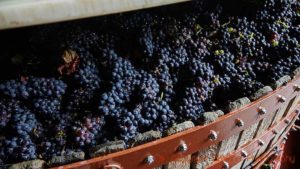 The latest technology to obtain more aromas in the wine is to use ultrasound. The method will probably soon be approved for winemaking. Ultrasound can be used on both white and red grapes in order to quickly extract aromas and other components from the grape skins. The destemmed and lightly crushed grapes are subjected to approximately five minutes, or less, of ultrasonic treatment of between 20 and 30 kHz.
The latest technology to obtain more aromas in the wine is to use ultrasound. The method will probably soon be approved for winemaking. Ultrasound can be used on both white and red grapes in order to quickly extract aromas and other components from the grape skins. The destemmed and lightly crushed grapes are subjected to approximately five minutes, or less, of ultrasonic treatment of between 20 and 30 kHz.
After this treatment, you can reduce the time of skin maceration to about half of what you would normally do and still get a stable and tasty wine. An Italian company is ready to start selling ultrasound equipment, but first the EU must approve the technology, which will probably happen sometime in 2020. Read more on what the OIV, the International Organisation of Vine and Wine, has to say (pdf): oiv.
(Ultrasound is sound of such a high frequency that humans cannot hear it. It is used, for example, to examine foetuses before birth. Many animals can hear it, for example bats that use it to navigate in flight.)
The Torres family celebrates its 150th anniversary
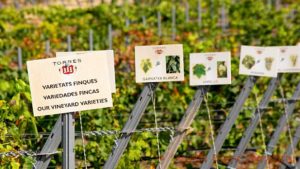 A few months ago we wrote about the 40th anniversary of Torres Chile. Today we congratulate the Torres family again, because this year the Spanish company is celebrating 150 years as winemakers. It was in 1870 that brothers Miguel and Jaime Torres Vendrell founded Casa Torres y Compañía in Vilafranca del Penedès, Catalonia. The company has evolved over the years to become one of the most talked about and admired in Spain and in the world.
A few months ago we wrote about the 40th anniversary of Torres Chile. Today we congratulate the Torres family again, because this year the Spanish company is celebrating 150 years as winemakers. It was in 1870 that brothers Miguel and Jaime Torres Vendrell founded Casa Torres y Compañía in Vilafranca del Penedès, Catalonia. The company has evolved over the years to become one of the most talked about and admired in Spain and in the world.
Miguel Torres’ environmental commitment, which now continues with the fifth generation, has received a lot of attention and the family continues unabashedly with their research to find the best climate solutions. And it gives results. Torres now announces that their carbon footprint per bottle, from vineyard to consumer, has decreased by 30% since 2008, when their first environmental measures were implemented. Read more: torres
Harvest 2020 in South Africa looks promising
 All producers we met on our wine tour in mid-February were so far happy with the quality and most of them also with the quantity. After the drought the quantities are now again back to more or less normal. The drought the past three years is over but water is still a scarce resource and visitors are encouraged not to waste water unnecessarily.
All producers we met on our wine tour in mid-February were so far happy with the quality and most of them also with the quantity. After the drought the quantities are now again back to more or less normal. The drought the past three years is over but water is still a scarce resource and visitors are encouraged not to waste water unnecessarily.
“In 2020 we will have a more normal quantity, we are happy about that, but it will also be a very good quality”, says Danie Steytler Jr at Kaapzicht in Stellenbosch. Sean Skibbe, winemaker at South Hill in cool climate Elgin, had already harvested the pinot noir and the sauvignon blanc was almost ready. It has been a strange season he says. Warm in October, chilly in November at flowering which caused some problems. It has been up and down but quality looks good. He is very excited about his block of malbec this year. “The best-looking vineyard at the moment.”
Travel: Travel to South Africa’s wine lands with BKWine.
BKWine on instagram
 We are now on instagram: BKWine on Instagram. We share photos and videos from some of our trips on our Instagram page. It is still a bit of an experiment, so if you have any comments or remarks, it is, of course, welcome. Many people say that it is more important to be seen on Instagram these days than to be on facebook. But we are not really sure. We will see.
We are now on instagram: BKWine on Instagram. We share photos and videos from some of our trips on our Instagram page. It is still a bit of an experiment, so if you have any comments or remarks, it is, of course, welcome. Many people say that it is more important to be seen on Instagram these days than to be on facebook. But we are not really sure. We will see.
Get inspired by beautiful, fun and often informative images from wine tours, tastings, delicious meals and more. Visit BKWine on Instagram!
Finally, a big international wine fair in Paris
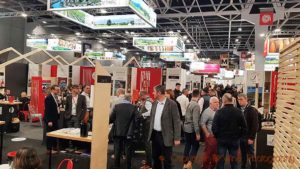 The last two years have seen a lot of commotion in the French wine fair world. World leading Vinexpo has long been firmly rooted in Bordeaux. So, the decision to move Vinexpo to Paris this year surprised many. Just as surprising was Vinisud’s decision in 2019 to move from Montpellier in Languedoc to Paris and team up with Vinovision, the wine fair for “cool climate wines”. Together these two fairs now form Wine Paris.
The last two years have seen a lot of commotion in the French wine fair world. World leading Vinexpo has long been firmly rooted in Bordeaux. So, the decision to move Vinexpo to Paris this year surprised many. Just as surprising was Vinisud’s decision in 2019 to move from Montpellier in Languedoc to Paris and team up with Vinovision, the wine fair for “cool climate wines”. Together these two fairs now form Wine Paris.
A few weeks ago, on February 10-12, Vinexpo and Wine Paris joined forces in in Paris, at the Expo Porte de Versailles. The result was Paris’ first really big professional wine fair. About time, according to some people.
This first edition was in general successful. 2,800 producers exhibited and more than 29,000 professional visitors from 126 different countries attended the fair. The three largest visiting countries were the United Kingdom, Belgium and the United States. We heard many positive voices, both from exhibitors and from visitors.
On February 15-17, 2021, it is time again for Wine Paris, i.e. Vinisud and Vinovision. What Vinexpo does in 2021 is still unclear. Read more: wineparis
Flash pasteurisation soon allowed for organic wines
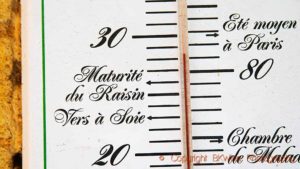 In 2012, the EU introduced rules for organic vinification, 21 years after the rules for organic farming were established. Small changes have been made since then with regard to (mainly) additives. In 2021 further changes will be made to the regulations. Currently, the organic rules allow the heating of must or wine to a maximum of 70 degrees C. From 2021 onwards, the limit will be changed to 75 degrees. This may seem like a minor change, but it will enable what is called flash pasteurisation.
In 2012, the EU introduced rules for organic vinification, 21 years after the rules for organic farming were established. Small changes have been made since then with regard to (mainly) additives. In 2021 further changes will be made to the regulations. Currently, the organic rules allow the heating of must or wine to a maximum of 70 degrees C. From 2021 onwards, the limit will be changed to 75 degrees. This may seem like a minor change, but it will enable what is called flash pasteurisation.
Flash pasteurisation makes the wine stable by killing microorganisms that are present in the wine. The temperature is quickly raised to 72-75 degrees and then, after 20-30 seconds, it is lowered again just as quickly. The method can result in the wine requiring a lower amount of sulphur. It is a gentle heating that stabilizes the wines microbiologically but does not change the character of the wine. Flash pasteurisation should not be confused with thermo-vinification which means longer heating with up to 80-90 degrees C to facilitate colour extraction. This method produces soft wines for fast consumption. Read more about flash pasteurisation here mon-viti
Moët Hennessy bans herbicides in their own vineyards
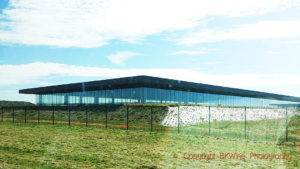 Big headlines is a given when a giant like Moët-Hennessy announces that all of their vineyards in Champagne from 2020 will be managed without herbicides (weed-killers). The announcement was made at Vinexpo, which took place in Paris on February 10-12. In addition, their vineyards in Cognac, a region that has not yet distinguished itself for its environmental commitment, are supposed to be herbicide-free as from 2021.
Big headlines is a given when a giant like Moët-Hennessy announces that all of their vineyards in Champagne from 2020 will be managed without herbicides (weed-killers). The announcement was made at Vinexpo, which took place in Paris on February 10-12. In addition, their vineyards in Cognac, a region that has not yet distinguished itself for its environmental commitment, are supposed to be herbicide-free as from 2021.
Moët Hennessy owns the champagne houses Moët & Chandon, Veuve Clicquot, Dom Pérignon, Ruinart, Krug and Mercier and produces about one quarter of all champagne. In Cognac, Hennessy accounts for 46% of sales. It is of course true that these M-H houses also buy very large quantities of grapes and the commitment does not apply to the suppliers’ vineyards. But they promise to support their grape suppliers and help them become sustainably certified. Moët Hennessy will also invest 20 million euro in scientific research on sustainable viticulture. Read more: prnewswire
South Africa’s grape growers succumb when big importers demand too low prices
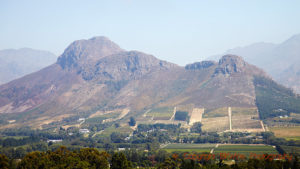 We have just returned from this year’s wine tour in South Africa and as usual we have tasted fantastic wines that show the ambition that exists in the country. But we should not forget the difficulties facing the South African wine industry. A large number of the country’s grape growers struggle financially and have a hard time to make end meets. According to South African Businesslive, only 28% of the grape growers made a profit in 2019, which is a much higher figure than 2015, when it was only 15%. So, it is positive development but still a far too low figure.
We have just returned from this year’s wine tour in South Africa and as usual we have tasted fantastic wines that show the ambition that exists in the country. But we should not forget the difficulties facing the South African wine industry. A large number of the country’s grape growers struggle financially and have a hard time to make end meets. According to South African Businesslive, only 28% of the grape growers made a profit in 2019, which is a much higher figure than 2015, when it was only 15%. So, it is positive development but still a far too low figure.
The vineyard area will continue to decline, some people believe, with as much as up to 7000 hectares before it stabilizes. We talked to Van Zyl de Toit, winemaker at Allée Bleue in Franschhoek, and he also emphasized this. “The wine area is decreasing, many growers are pulling out their vines and start to grow fruit and vegetables instead, it is much more profitable.” He also believes that importers, the Scandinavian monopolies not least, must stop demanding too low prices and instead be prepared to pay sustainable prices for South African wines. For most producers it is virtually impossible to achieve profitability with the low prices the monopolies (and some other big buyers) ask for in the invitation to tenders. And without profitability one cannot invest in better quality and cannot improve the working conditions of vineyard employees. In other words, there is a big contradiction between the low prices asked for by the monopolies (and other big buyers) and the campaign demands they raise on the wineries to improve workers’ conditions. Read more: businesslive
Travel: Travel to South Africa’s wine lands with BKWine.
VinNatur, natural wines with rules and regulations, invites you to a big wine tasting in Veneto in April
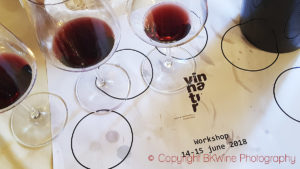 VinNatur is an Italian association for, as the name implies, producers who make natural wines. The big difference compared to other natural wine associations is that VinNatur has strict regulations on viticulture and vinification and puts a big emphasis on the wines’ technical and sanitary qualities. The association has around 200 members. It is an incredibly ambitious association that runs various interesting research projects to come up with better, more natural and more environmentally friendly working methods.
VinNatur is an Italian association for, as the name implies, producers who make natural wines. The big difference compared to other natural wine associations is that VinNatur has strict regulations on viticulture and vinification and puts a big emphasis on the wines’ technical and sanitary qualities. The association has around 200 members. It is an incredibly ambitious association that runs various interesting research projects to come up with better, more natural and more environmentally friendly working methods.
Every year they organise a great tasting of the members’ wines in Gambellara in Veneto. This year’s “The VinNatur Tasting” will take place on April 18-20, 2020. It is one of the largest natural wine events in Europe. Read more: vinnatur
Be inspired by pictures and videos from the winter wine tours to the southern hemisphere
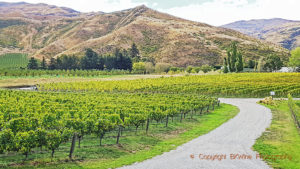 In winter we have three lovely long-distance tours to wine countries in the southern hemisphere: Chile, Argentina, South Africa and New Zealand. It is so nice to get away from the cold and dark winter. But more importantly, these are four wine countries that are really charming. Different cultures, beautiful landscapes, good food. And above all, fantastic, delicious and exciting wines. We have taken the habit of sharing photos and videos from the visits on these trips on Facebook. But also sharing much else from the journeys too, eg. the trip across the Andes going up to 3,000 meters (9,000 ft) from Mendoza to Chile, or the boat ride on the glacier lake in the shadow of Mount Cook in New Zealand and much more. Are you curious about these tours, or just curious about what these wine countries look like, then you can find all our pictures and videos on these Facebook pages. Click “join” and you will also get all updates:
In winter we have three lovely long-distance tours to wine countries in the southern hemisphere: Chile, Argentina, South Africa and New Zealand. It is so nice to get away from the cold and dark winter. But more importantly, these are four wine countries that are really charming. Different cultures, beautiful landscapes, good food. And above all, fantastic, delicious and exciting wines. We have taken the habit of sharing photos and videos from the visits on these trips on Facebook. But also sharing much else from the journeys too, eg. the trip across the Andes going up to 3,000 meters (9,000 ft) from Mendoza to Chile, or the boat ride on the glacier lake in the shadow of Mount Cook in New Zealand and much more. Are you curious about these tours, or just curious about what these wine countries look like, then you can find all our pictures and videos on these Facebook pages. Click “join” and you will also get all updates:
- Chile and Argentina
- South Africa
- New Zealand (the tour starts next week)
International Sparkling Festival in Frankfurt in June
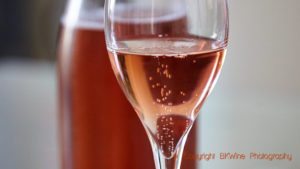 For those of you who love bubbles, we can announce that the fourth “International Sparkling Festival” will take place on June 14, 2020 in Frankfurt. Over 160 sparkling wines, made using the traditional method (with a second fermentation in the bottle), will be presented by around 60 different producers. There will be growers from Germany, England, France, Italy, Luxembourg, Portugal, Austria, Spain, Hungary, Slovenia, South Africa and California. Many winemakers will be present to meet the visitors.
For those of you who love bubbles, we can announce that the fourth “International Sparkling Festival” will take place on June 14, 2020 in Frankfurt. Over 160 sparkling wines, made using the traditional method (with a second fermentation in the bottle), will be presented by around 60 different producers. There will be growers from Germany, England, France, Italy, Luxembourg, Portugal, Austria, Spain, Hungary, Slovenia, South Africa and California. Many winemakers will be present to meet the visitors.
The day after, on June 15, a Sparkling Symposium takes place at the University of Geisenheim. Industry professionals and scientists will discuss the production of sparkling wines, current issues that winemakers face and much more. Read more: sparklingfestival
Features
Features that we have published during the past month, with lots of reading for you.
The OIV 2019 Awards Ceremony when our Languedoc-Roussillon book received the OIV Prize
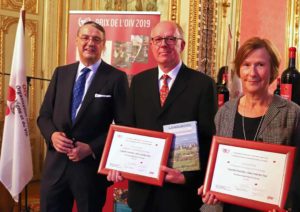 “We hope to inspire more people to discover this exiting wine region in the south of France. A lot of wine writing tends to be focussed on the most famous wines and wine regions. Languedoc-Roussillon is not – yet – so famous but makes fabulous wines. It is one of the few wine regions where it is still affordable to buy vineyard land, so it attracts many young and ambitious winemakers. And make wines that are affordable to the consumers. We hope our book will make more people discover these fantastic wines, the stunningly beautiful landscape and the local gastronomy. And come to visit and travel in the region. Thank you!”
“We hope to inspire more people to discover this exiting wine region in the south of France. A lot of wine writing tends to be focussed on the most famous wines and wine regions. Languedoc-Roussillon is not – yet – so famous but makes fabulous wines. It is one of the few wine regions where it is still affordable to buy vineyard land, so it attracts many young and ambitious winemakers. And make wines that are affordable to the consumers. We hope our book will make more people discover these fantastic wines, the stunningly beautiful landscape and the local gastronomy. And come to visit and travel in the region. Thank you!”
That was our short speech to say thank you when we received the OIV award for our latest book, “Languedoc-Roussillon, the wines from the south of France”. Read more on BKWine Magazine: The OIV 2019 Awards Ceremony when our book received the OIV Prize.
Wine tours
Some information about current and future wine tours with BKWine.
Bordeaux, a beautiful city and a diversity of wine styles | wine tour
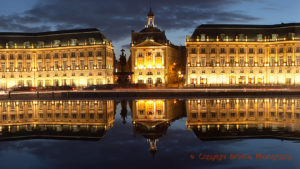 Bordeaux is an incredibly beautiful city, situated on the river Garonne. Strolling along the quay is popular among the inhabitants, as is having a glass in one of the wine bars. There are many to choose from, whether you like classic grand cru classé or natural wines. The city is strategically located for visits to Médoc, Graves, Entre-deux-Mers and Saint Emilion. These are all regions that we will visit on the tour. We will show you the diversity of Bordeaux, the prestigious chateaux and the small family wineries. All our visits are equally interesting, but in different ways. Out high-class chateau lunches will give you inspiration for food and wine combinations.
Bordeaux is an incredibly beautiful city, situated on the river Garonne. Strolling along the quay is popular among the inhabitants, as is having a glass in one of the wine bars. There are many to choose from, whether you like classic grand cru classé or natural wines. The city is strategically located for visits to Médoc, Graves, Entre-deux-Mers and Saint Emilion. These are all regions that we will visit on the tour. We will show you the diversity of Bordeaux, the prestigious chateaux and the small family wineries. All our visits are equally interesting, but in different ways. Out high-class chateau lunches will give you inspiration for food and wine combinations.
We have two tours to Bordeaux during 2020:
Champagne, why is it special? Find out during harvest in September | wine tour
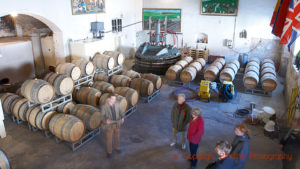 Champagne today has many competitors. More and more countries and regions are making fine sparkling wines. What makes Champagne so special? You will learn that during this tour that takes us to different types of producers, both small and big. We will go through the entire process of making champagne, but we will also talk about the climate and the soil and the major challenges facing the producers today. We can promise many exciting discussions. And extraordinary lunches. Harvest is either underway and just about to start. We can expect a lot of excitement in the air.
Champagne today has many competitors. More and more countries and regions are making fine sparkling wines. What makes Champagne so special? You will learn that during this tour that takes us to different types of producers, both small and big. We will go through the entire process of making champagne, but we will also talk about the climate and the soil and the major challenges facing the producers today. We can promise many exciting discussions. And extraordinary lunches. Harvest is either underway and just about to start. We can expect a lot of excitement in the air.
Three fantastic wine tours to the sunshine of the southern hemisphere in winter 2021
 In January-February-March 2021, we organise three very exciting tours to New World countries in the southern hemisphere. The tours will, of course, focus on the wines. But we also have time to experience the countries as such, the culture, the nature and not least the gastronomy. There will be many meetings with fascinating people, winemakers and others, many wines to try and many experiences of different kinds to take back home.
In January-February-March 2021, we organise three very exciting tours to New World countries in the southern hemisphere. The tours will, of course, focus on the wines. But we also have time to experience the countries as such, the culture, the nature and not least the gastronomy. There will be many meetings with fascinating people, winemakers and others, many wines to try and many experiences of different kinds to take back home.
These four wine countries belong to what we call the New World, but that does not prevent them from having hundreds of years of wine history. But the wines have never been as good as they are today in Chile, Argentina, South Africa and New Zealand. Four magnificent wine countries that you will not forget.
- South America, Chile and Argentina, January 18–31, 2021
- New Zealand, February 18–March 5, 2021
- South Africa, March 17–26, 2021
See details on BKWine Wine Tours .
Don’t be an egoist! Share with your friends and other wine enthusiasts! Forward the Brief to your friends! Suggest that they sign up for a free subscription !
© Copyright BKWine


